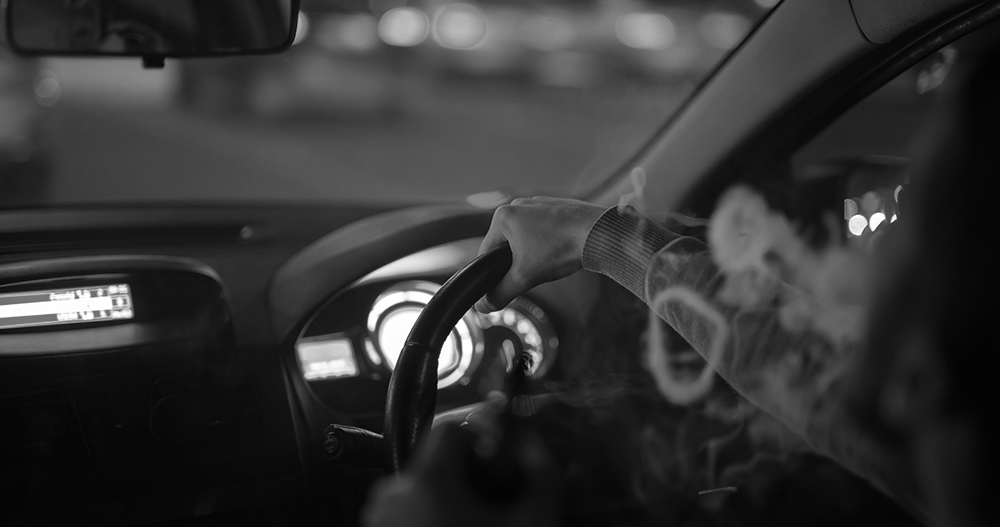Driving under the influence of drugs is a criminal offence, with potentially devastating – even deadly – consequences.

And yet impaired driving is still alarmingly prevalent in Canada. A 2017 study on drug-impaired driving by Public Safety Canada found that 28 per cent of surveyed marijuana users admitted to operating a vehicle while under the influence. Furthermore, one in three Canadians have been passengers in a vehicle operated by a driver who was under the influence of marijuana.
The recreational use of marijuana will be legal in Canada on Oct. 17, 2018. In anticipation of the new legislation coming into force, it is important to note that in addition to posing a risk to yourself and others, driving high can result in a criminal conviction and carries significant implications for your own insurance coverage.
What are no-fault benefits?
As part of the legislative scheme for car insurance in Ontario, all drivers and passengers injured as a result of the “use and operation of a motor vehicle” have access to Statutory Accident Benefits. These benefits are commonly known as “no-fault benefits.” They are available without regard to whether you caused or contributed to the accident, but some exceptions apply.
How does driving high impact your no-fault benefits claim?
With regard to no-fault benefits, if you are found to be impaired by alcohol and/or drugs at the time of the accident, your insurer may not be required to pay you an income replacement benefit, a non-earner benefit or other benefits such as lost educational expenses, expenses of visitors and housekeeping and home maintenance benefits.
Under section 31 of the Statutory Accident Benefit Schedule, there is no obligation on the part of your insurer to pay for those no-fault benefits to a person who is convicted of “operating an automobile while the ability to operate the automobile is impaired by alcohol or a drug.” It is important to note that this exclusion will apply not only to the driver, but also to any passenger of the automobile.
In an impaired driving scenario, you would not be entitled to the benefits listed below:
- Income Replacement Benefits (“IRBs”): Maximum coverage of $400 per week, unless optional benefits are purchased to increase IRBs to $600, $800 or $1,000 per week.
- Non-Earner Benefits (“NEBs”): $185 per week less the total of all other income replacement assistance, if any, for the same week.
- Lost Educational Expenses: Maximum coverage of $15,000 if you were enrolled in a program of elementary, secondary, post-secondary or continuing education and are unable to continue the program.
- Expenses of Visitors: Reasonable and necessary expenses incurred by certain people visiting you during your treatment or recovery.
- Housekeeping and Home Maintenance: Maximum coverage of $100 per week, but only payable if optional benefits were purchased or you sustained a catastrophic injury.
Although the benefits described above would no longer be available to you, you may still have access to some no-fault benefits.
For example, provided that you qualify for benefits generally, you will still have access to reasonable and necessary medical, rehabilitative and attendant care benefits.
Key takeaway
To underscore the obvious: You should not drive while under the influence of marijuana or any other drug.
But beyond the potentially devastating impact of impaired driving on its victims and survivors, you should also consider the detrimental impact of impaired driving on your no-fault benefits claim.
In short, if you get into a car accident while driving high, or you are a passenger in a car driven by someone who is high, the consequences may be significant and your insurance coverage for no-fault benefits will be significantly reduced.
If you have any questions about your no-fault benefit claims, contact our Personal Injury Group.


